Health and Beauty!
What is Aloe Vera?
The Aloe Vera plant, sometimes described as a “miracle plant“, is a shrub that contains over 500 species of succulent plants. Each Aloe Vera leaf has three main layers. There is an inner gel that contains 99% water, and the rest is made up of amino acids, glucomannans, sterols, lipids and vitamins. The middle layer contains a yellow sap rich in glycosides and anthraquinones. The gel obtained from the leaves of the Aloe Vera plant has therapeutic benefits that have been used for thousands of years in traditional medicine.
What is Aloe Vera good for
People have been using the benefits of Aloe Vera for thousands of years to moisturize and improve the appearance of the skin.
Vitamin and mineral content of Aloe Vera
Well-known for its multiple benefits, Aloe Vera contains 75 active elements: vitamins A, C and E, B12, folic acid, eight enzymes, calcium, copper, selenium, chromium, magnesium, potassium, sodium, zinc, aloin and emodin, fatty acids, hormones, monosaccharides and polysaccharides.
Properties
The presence of these elements in the medicinal plant Aloe Vera determines properties: antioxidant, anti-inflammatory, analgesic, antiseptic, antiviral, anti-bacterial and metabolic regulating.
When taken as a dietary supplement, the laxative effects of Aloe Vera help relieve constipation. It also helps in the treatment of peptic ulcers, Crohn’s disease and ulcerative colitis.
Aloe Vera has contraindications for administration within two weeks of any scheduled surgery.
Effects and Benefits
1. Helps the immune system and helps prevent diseases. Antibacterial. Antiviral.
- Aloe Vera acts as a powerful stimulus for the immune system
- ensures the intake of bioactive substances necessary for physiological functions with an immunoprotective role
- contains enzymes that contribute to the breakdown of proteins into amino acids, a source of vital energy for the body
- contributes to the proper functioning of the body
- combats zinc deficiencies, an important element in the functionality of the immune system
- Aloe Vera has antiviral, antimicrobial and antibacterial effects
2. Broad-spectrum anti-inflammatory. Anti-infectious.
Aloe Vera has an important content of vitamins that play a role in combating inflammation and infections:
- Vitamin A supports the health of the skin, eyes, neurological functions
- Vitamin C protects the heart, blood vessels and eyes and delays skin aging
- Vitamin E has an antioxidant effect, improves inflammation and slows down cell aging
- is very effective in improving inflammation that underlies serious diseases
- prevents and reduces the extent of infections of various types
- Aloe Vera improves gum diseases and toothaches
- helps in improving symptoms in diseases related to senescence
3. Health and beauty for the skin.
- acts on the dermis by reducing inflammatory manifestations
- helps in the rapid recovery of wounds
- Aloe Vera intervenes in stopping or improving a large number of dermatological conditions
- aids in the fight against acne and eczema
- reduces skin inflammation when exposed to the sun and protects it from the effects of UV rays
- reduces inflammation in the case of insect bites
- helps moisturize the scalp and reduce dandruff
- Aloe Vera is recommended for smokers or those who are exposed to cigarette smoke
4. A healthy brain. Protected cardiovascular system.
- Aloe Vera is a general tonic, energizing, effective in physical and intellectual effort
- combats spring asthenia
- balances metabolism
- supports neurological functions
- Aloe Vera reduces cholesterol and triglycerides
5. Liver detoxification. Digestive tract health.
- Aloe Vera helps maintain the health of the stomach and the entire digestive tract
- has a mild laxative and pain-relieving effectlor
- has anti-inflammatory action, neutralizing gastric hypersecretion
- Aloe Vera reduces acidity
- contributes to the improvement of gastrointestinal diseases
- adjuvant in the treatment of irritable bowel syndrome and gastric ulcers
- improves the digestive process
6. Pancreas health
- Aloe Vera is in the attention of specialists due to its beneficial effects as an adjuvant in the improvement of pancreatic diseases
- contributes to the reduction of chronic hyperglycemia
- helps regulate the lipid profile
- reduces the risk of cardiovascular complications
Indications
Aloe Vera supplements are recommended in the case of:
- Digestive disorders: constipation, indigestion, bloating, flatulence, bad breath, colitis, irritable bowel syndrome, ulcer, gastritis, gastric hyperacidity;
- Hepatic steatosis, hepatitis, cirrhosis;
- In detoxification treatments, smokers, alcoholics;
- Conditions with low immunity: allergies, bronchitis, asthma, TB;
- Cicatrizing and epithelializing;
- Dermatological diseases: abscesses, boils, mycoses, acne, herpes, eczema, dermatitis, psoriasis;
- Minor injuries, sunburn, rashes, insect bites, bedsores;
- To restore the skin’s shiny and velvety appearance (damaged and rough skin, wrinkles and stretch marks);
- Adjuvant in antitumor therapies, protector in radio and chemotherapy;
- In weight loss programs;
- Postoperative and convalescent.
Precautions
Ask your doctor for permission to take the Aloe Vera dietary supplement if:
- you are pregnant or breastfeeding
- you suffer from autoimmune diseases
- you suffer from diabetes, Crohn’s disease, ulcerative colitis.
- you have kidney failure.
- before surgery.
- combined with laxative medication.
Administration
Adults: 1-2 capsules/day.
Drink 1-2 liters of water/day. A box of 30 capsules is enough for 30 days.
Duration of administration
3 months, followed by a one-month break, after which the product can be taken again.
Composition
Active ingredients/capsule:
| Aloe (Aloe Vera) standardized leaf extract 200:1 | 25mg |
|---|---|
| (equivalent to 5000 mg fresh Aloe Vera plant) |
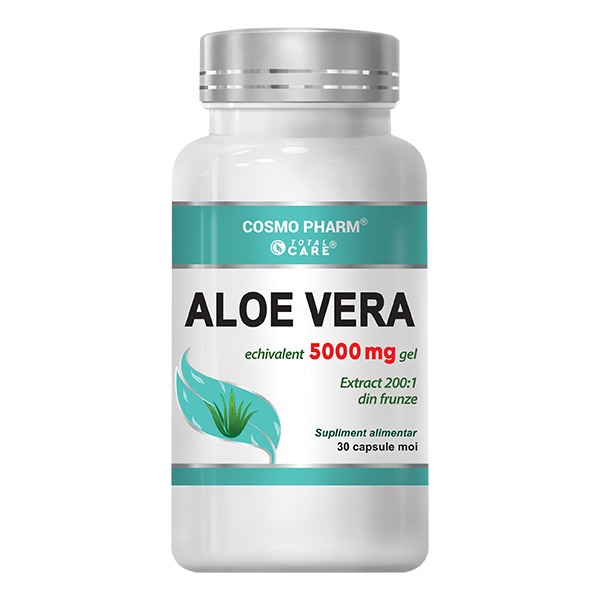
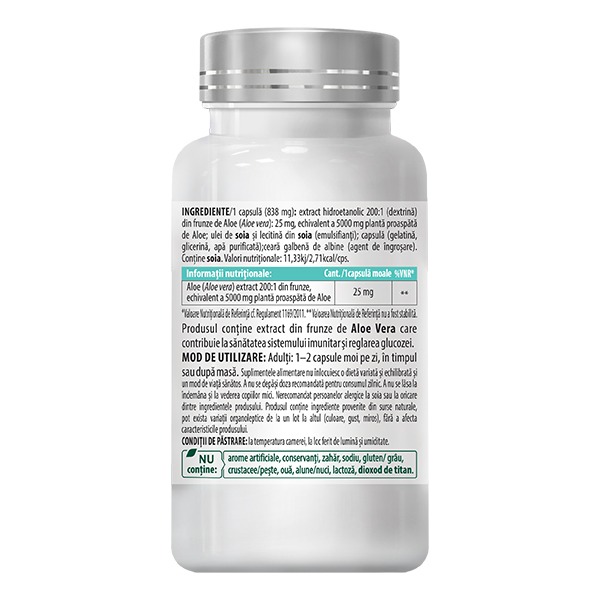
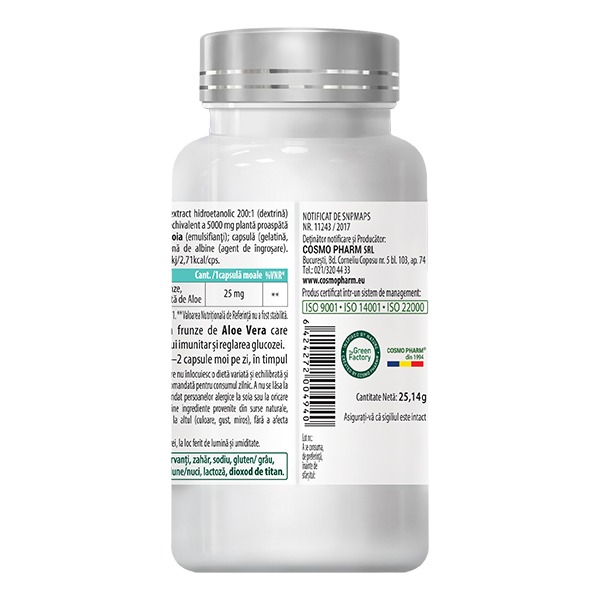
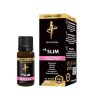
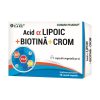
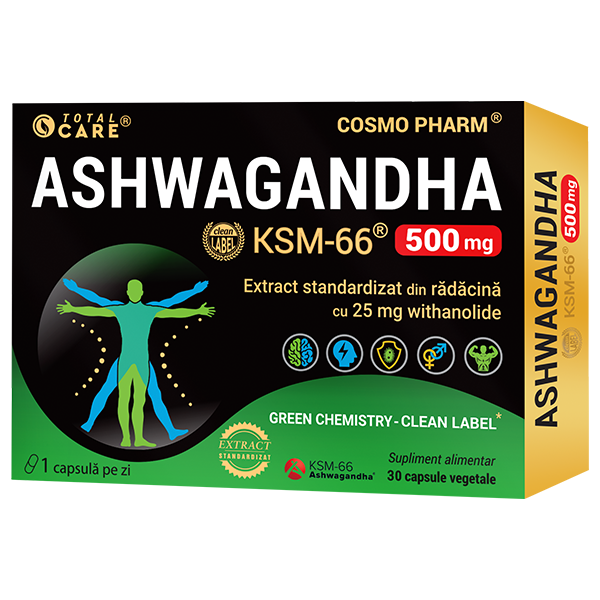
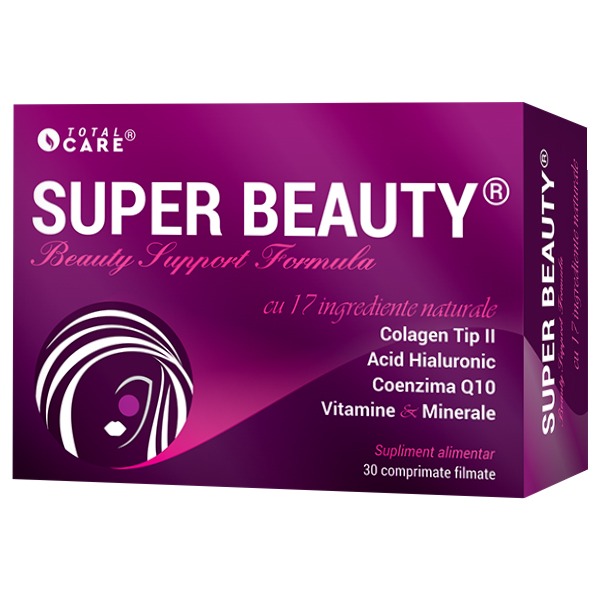
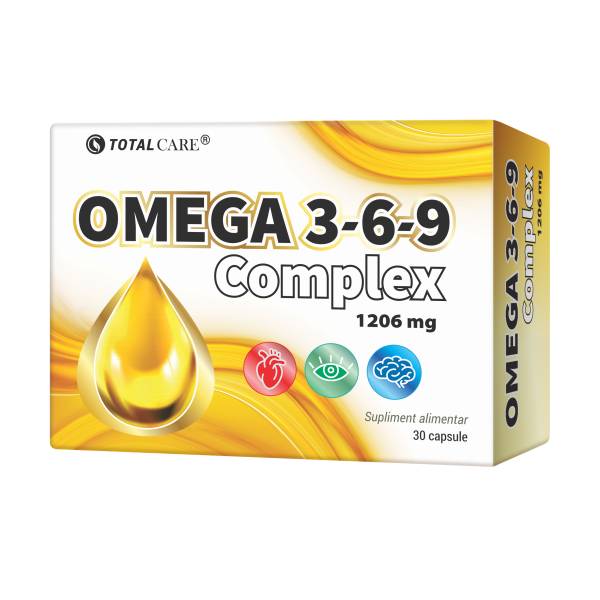
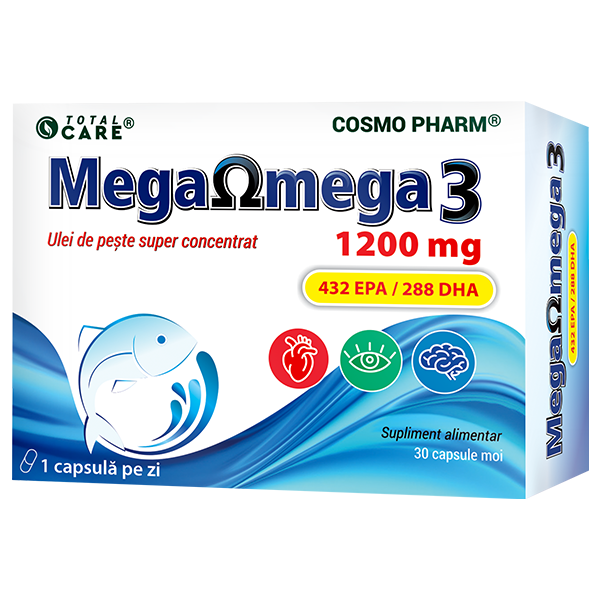
Reviews
There are no reviews yet.